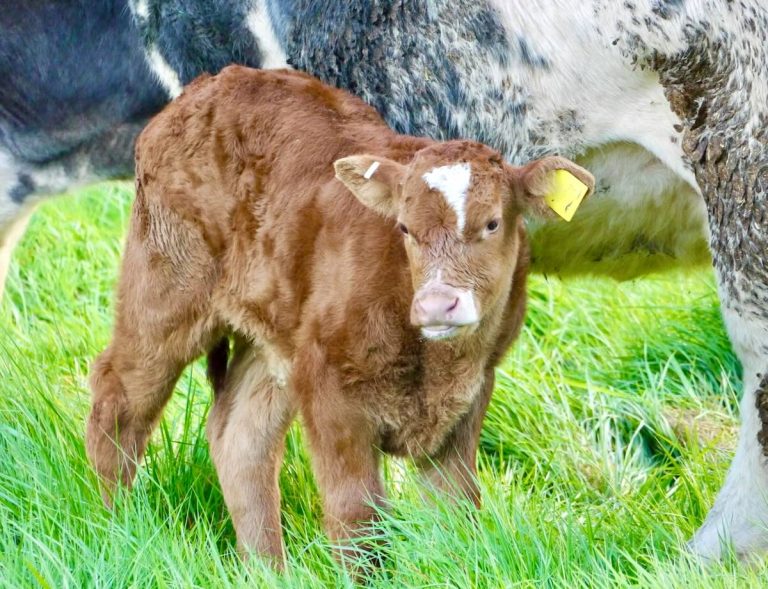
Vox recently published an article titled “Scientists are measuring burps and farts. It could help save the planet. Target C is crucial. [emphasis, links added]
This is wrong.
Methane associated with animals poses no threat to the environment and has a minimal impact on global warming.
The article draws heavily on work by scientists in Colombia, who measured the amount of methane produced in burps and gases by different farm animals, depending on the type of feed they ate, to determine the feed that produced the least methane.
Place animals indoors and monitor their emissions.
Vox wrote:
The chambers are part of a multi-year program to reduce the amount of methane produced by farm animals. This is important. Methane is a potent greenhouse gas responsible for approximately 20% to 30% of global warming since the Industrial Revolution. Most of global methane emissions come from human activities, with the largest single source being agriculture – the burps of ruminant animals such as cattle, goats and sheep and their waste.
Vox quotes the International Energy Agency (not a scientific organization, by the way) as saying that most methane emissions are caused by human activities. This is not true and is probably wrong.
For example, multiple peer-reviewed research papers here and here found that, Natural sources of methane, such as but not limited to emissions from wetlands, and emissions from other agricultural sources, such as rice fields, are the largest sources of methane in the atmosphere.
In fact, recent research shows that human methane emissions from oil and gas operations have declined in recent decades, despite increases in production, and that methane in the atmosphere has increased overall— Represents an increase from natural or other human sources.
Although, as Vox notes, methane is a “powerful” greenhouse gas, with much greater warming potential per molecule than carbon dioxide, It has a short atmospheric lifetime, so it plays a relatively small role in the atmosphere in terms of long-term warming.
NASA, one of the sources for the Vox story, acknowledged this.
However, what Vox and NASA ignore is that methane's absorption band occurs at the wavelength of the strongest and most abundant greenhouse gas – water vapor, which accounts for 97% of greenhouse gases in the atmosphere.
Methane is a trace gas and, despite the alarmism, has a very small effect.
With this in mind, it would be more useful to focus on greenhouse gas emissions overall. EPA data for the United States (because that country has the best and most accessible data) clearly shows: Livestock emissions represent only a small portion of total human emissions. (see picture below)

Vox specifically targeted beef production, writing:
“It will be impossible to limit global warming to 1.5 degrees Celsius without addressing emissions from the food industry, beyond which climate change will be catastrophic. Reducing meat, especially beef, consumption may be the answer. The most important part of this effort, but it's an uphill battle as global meat consumption is expected to rise in the coming years.
But beef production accounts for only 2% of total U.S. greenhouse gas emissions, emitting more than the farming industry, which accounts for 10.2% of U.S. emissions.
These numbers are probably similar in most Western countries. climate realism For example, these facts have been presented many times before here , here , and here . The facts haven’t changed, but the climate alarmist arguments have never been revised or improved.
These data support research by Professor Dr. Habil Wilhelm Windisch of the Technical University of Munich, which shows The contribution of ruminants to greenhouse gas emissions has been exaggerated by at least three to four times by climate alarmist groups and media outlets such as Vox.
Additionally, U.S. methane emissions have been declining steadily since the 1990s, according to the EPA. (see picture below)

In order to collect data or learn more about ruminant digestion and how to improve the efficient digestion of food consumed by livestock, it may be worthwhile to conduct “livestock gas chamber” experiments.
But ultimately, if the goal is to stop the planet from gradually warming, it's a waste of time and money.
All it might accomplish is bring more research funding to academics who attack modern high-yield fossil fuel-intensive agriculture, while making meat more expensive and less affordable for the world's poorest people.
Vox’s comments clearly demonstrate their support for reducing meat consumption and its projected growth in developing countries.
In short, the authors assumed from the outset that livestock methane emissions would cause dangerous climate change, and in fact, they should have proven it.
As a result, Vox is willing to mislead and ignore relevant data to prove that reducing meat consumption is critical to combating what the authors consider dangerous climate change.
Most popular photo on Unsplash by Jim
Read more Climate Realism
